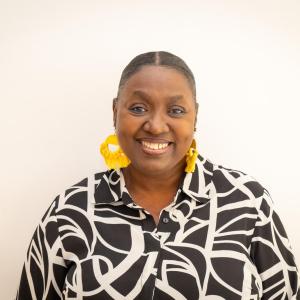High-level forum explores challenges faced by ECLAC Associate Members in the Eastern Caribbean in implementation of the 2030 Agenda
15 March 2021
- Caribbean Overseas Territories (OTs) and Associate Members of the Economic Commission for Latin America and the Caribbean (ECLAC), have been assured of the support of regional organisations and the international community, to aid their recovery from COVID-19 and to help them to deliver on the 2030 Agenda.
Costa Rica: Caribbean Overseas Territories (OTs) and Associate Members of the Economic Commission for Latin America and the Caribbean (ECLAC), have been assured of the support of regional organisations and the international community, to aid their recovery from COVID-19 and to help them to deliver on the 2030 Agenda.
This pledge came on Monday, March 15, during a virtual High-level Meeting on the Challenges faced by Associate Members of ECLAC in the Implementation of the 2030 Agenda. The meeting formed part of ECLAC’s 2021 Forum of the Countries of Latin America and the Caribbean on Sustainable Development, held March 15 – 18.
Andrew Fahie, Premier and Minister of Finance of the British Virgin Islands, who is also Vice-Chair of the Caribbean Development and Cooperation Committee (CDCC) of ECLAC, opened the meeting and emphasized the importance of Associated Members considering their shared needs and common aspirations as they seek to achieve the SDGs. He especially thanked the UN System for including OTs in targeted support for COVID-19, particularly through the UN COVID-19 Multi-Sectoral Response Plan for Barbados and Eastern Caribbean, and, acknowledged the unswerving support of regional organisations including CARICOM and the OECS.
“We cannot deny that COVID-19 has set back the process towards achieving the 2030 Agenda. But I firmly believe it’s time to strengthen our resolve to defeat the COVID – 19 pandemic and promote sustainable development and green growth,” he asserted.
Noting that inclusion would help to create a more realistic picture of the plight of Caribbean and Latin American countries, Premier Fahie concluded: “I hope our participation in this forum will help in the mainstreaming of Associate Members into the framework for sustainable development.”
In addressing what he described as a very timely forum, UN Resident Coordinator, Didier Trebucq, reiterated the UN’s support for SIDS during this uncertain period where pandemics, natural disasters, and other crises continue to threaten decades of hard-earned development gains. “These challenges are universal and demand action – to ensure that the promise of the SDGs can be realized everywhere, no matter the size of a country, its level of GDP or its legal status,” he said.
Mr. Trebucq underscored the UN’s commitment to addressing individual needs of SIDS and OTs. He explained: “In particular, we will develop a Country Implementation Plan in each overseas territory covered by the UN Multi-country Sustainable Development Framework. This will serve as a strategic tool to define coherent, tailored engagement of the UN system with each country. Hopefully, we can build solid partnerships in priority areas in your pursuit of the SDGs and the SAMOA pathway.”
In a presentation supported by telling images and statistics, Diane Quarless, Chief of the ECLAC Sub-regional headquarters for the Caribbean, highlighted the diverse challenges facing the region’s social sector evidenced by increasing poverty rates, rising debt, exacerbated inequalities and decent work deficits in SIDS.
“Caribbean SIDS have unique vulnerabilities. It is in fact the exposure to vulnerabilities and external shocks that contribute to the increase in debt and the challenges SIDS face, especially tourism-dependent countries,” she noted while underscoring the need to promote local tourism and economic diversification as priorities for their support to the restitution of the Caribbean.
Christian Guillermet-Fernández, Costa Rica’s Deputy Minister for Multilateral Affairs in the Ministry of Foreign Affairs and Worship, who is also Chair of ECLAC, maintained that : “The 2030 agenda must continue to be point of reference.” Supporting this assertion while calling for a united front , Alicia Bárcena, Executive Secretary of ECLAC maintained: “We must do it together.”
Associate members collectively thanked ECLAC and members of the regional and international community for ongoing support, while reiterating their high vulnerability to external shocks including hurricanes, as in the case of Irma and Maria in 2017, and more recently COVID-19. With countries facing major infrastructural loss and rising debt from these external shocks, GDP growth has been reportedly low over the last decade, plummeting to an average of -17.7 in 2020.
Highlighting the case of Anguilla, Premier, Ellis Webster, revealed that the impacts of Hurricane Irma, followed by the COVID-19 pandemic, had caused a decline in the tourism industry by 93.7 %. “Hurricane Irma destroyed 90 % of the residential and business infrastructure, and just when we were beginning to recover, we were slammed by COVID-19,” he explained.
Prime Minister of Sint Maarten, Silvera Jacobs, also reiterated their similarities and shared challenges, including being “single-pillar economies” and facing brain drain due to limited opportunities for young professionals.
“Caribbean countries must seek to address archaic frameworks and implement policies that achieves a middle ground in terms of protecting the climate and protecting the most vulnerable. My hope, as we approach 2030, is that more substance can be given to solutions through partnerships. Only together, can we leave no one behind,” she stated.
Advising colleagues that: “in these demanding times we have to work together and join forces,” Joycelyn Croes, Special Advisor to the Government of Aruba warned: “external shocks do not discriminate against our constitutional status.”
Associate members from Bermuda, Martinique and US Virgin Islands also made interventions as part of the interactive dialogue. Supporting statements were also made by Rodolfo Sabonge, Secretary-General of the Association of Caribbean States (ACS), Dr. Douglas Slater, Assistant Secretary-General for Human and Social Development of the Caribbean Community (CARICOM) Secretariat and Stephen Fevrier, Ambassador, Permanent Delegation of the Organisation of Eastern Caribbean States (OECS) to the United Nations in Geneva.


















